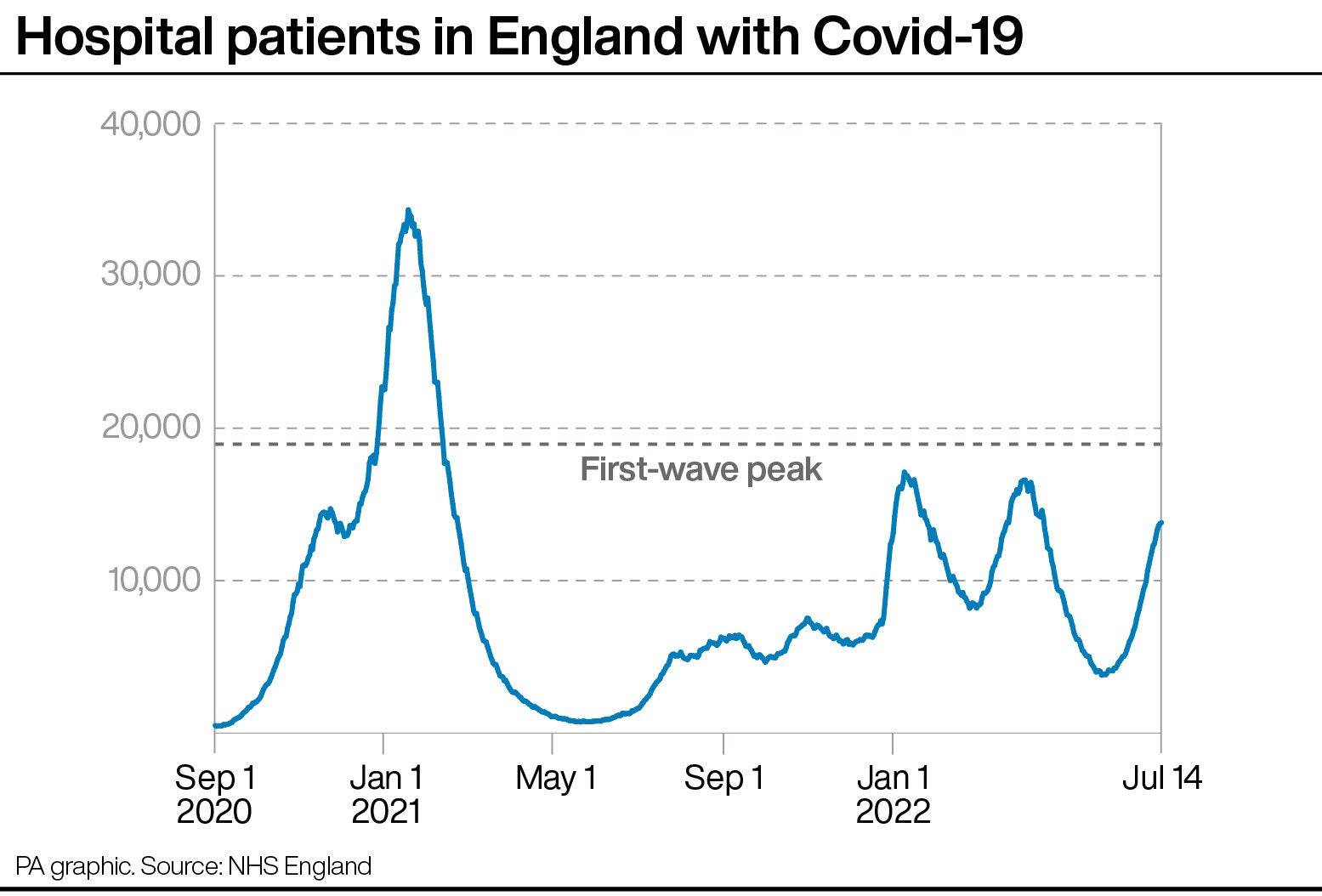
The month-long rise in the number of hospital patients in England testing positive for Covid-19 appears to be slowing down, figures show.
A total of 13,807 people were in hospital as of 8am on July 14, up 16% on the previous week.
Seven days ago, on July 7, the week-on-week increase stood at 33% – while it was running as high as 39% at the start of July.
The number of patients with Covid-19 is creeping closer to the levels reached during the two waves of infection earlier this year.
But if the rate of increase continues to slow, the current wave may end up peaking below the 16,600 seen at the height of the Omicron BA.2 wave in April.

Hospital admissions of people in England with Covid-19 are also showing signs of slowing down.
The rate of admissions stood at 17.9 per 100,000 people in the week ending July 10, according to new figures from the UK Health Security Agency (UKHSA).
This is up from 15.7 per 100,000, but is the smallest rise for several weeks.
The current wave is being driven by the coronavirus variants Omicron BA.4 and BA.5, which are more transmissible than BA.2.
Dr Mary Ramsay, UKHSA director of clinical programmes, said: “Covid-19 case rates and hospitalisations continue to rise, although the rate of increase appears to be slowing.
“Those aged 75 and over who have not taken up the offer of the spring booster put themselves at risk of severe disease.
“We urge all those who are eligible for the spring booster to take up the offer as soon as possible. Anyone who has not yet had their first or second dose should also get up to date with their jabs to give themselves the best possible protection.”
All over-75s in the UK were offered a “spring booster” earlier this year, available at least three months after their most recent jab, to ensure they continue to receive the maximum possible protection.
But around one in six over-75s (15.6%) have not received any doses of Covid-19 vaccine in the last six months, putting them more at risk of serious illness.
Hospital admission rates are highest among the older age groups and have climbed to 163.7 per 100,000 among over-85s and 74.3 per 100,000 for 75-84 year-olds – levels last seen in early April.
Around six in 10 patients who test positive for Covid-19 are being treated primarily for something else rather than the virus, but still need to be kept isolated from other patients, putting extra pressure on hospital staff and resources.
Separate figures published on Thursday show the number of people in England waiting to start routine hospital treatment has risen to a new record high of 6.6 million.
The latest estimates of the number of people infected with Covid-19 across the UK will be published on Friday by the Office for National Statistics and are expected to show another increase.
A total of 2.7 million people in private households were likely to have had the virus in the week to June 30, the highest estimate since late April but still some way below the record high of 4.9 million at the peak of the BA.2 wave.







